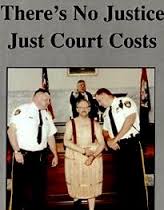In Korpiel v Sanguinetti (1999) B.C.J. 1048 the court concluded that a will drafter, usually a solicitor or notary, owes no duty of care to beneficiaries beyond the competent and timely fulfillment of the testator’s testamentary instructions.
In the Sanguinetti case, the court considered whether a will drafter owed a duty to beneficiaries who had been named in a client’s former will. The plaintiffs were relatives of an elderly testator who had instructed his lawyer to prepare a will bequeathing his home to the plaintiffs. Some years later, the testator changed his mind and instructed the lawyer to draft a new will, leaving the plaintiffs only a small bequest.
The plaintiffs challenged the later will and brought a court action against the lawyer who drafted it for a breach of fiduciary duty owed to them. Their claim was dismissed.
The court held that if a will drafter were to conduct him- or herself as proposed by the plaintiffs—that is, to refuse to follow the client’s instructions in preference to the interests the potential beneficiaries—it would be impossible for the will drafter to avoid a conflict of duty and interest. If the will drafter were to be held to advocate for inclusion of persons or terms of disposition that were contrary to the specific instructions of the client, it would clearly result in a conflict with the will drafter’s primary duty to his or her client. The court found such a situation would be untenable.
Thus a will drafter cannot owe an independent fiduciary duty to the beneficiary of a will, for if the testator’s instructions were to conflict with the beneficiaries’ interests, the will drafter would be unable to avoid conflicting duties to both parties.
In Smolinski v. Mitchell [1995] 10 W.W.R. 68 (BCSC), Sigurdson J. considered the question of the duty of a solicitor to his client, in contrast to the duty to others who may be deprived of an inheritance by reason of a solicitor’s failure to properly carry out his client’s instructions. His Lordship quoted from the English decision of Ross v. Caunters [1979] 3 All E.R. 580, [1980] Ch. D. 297 at 322:
“The argument seems to me to confuse duties which differ in their nature. In broad terms, a solicitor’s duty to his client is to do for him all that he properly can, with, of course, proper care and attention. Subject to giving due weight to the adverb “properly,” that duty is a paramount duty. The solicitor owes no such duty to those who are not his clients. He is no guardian of their interests. What he does for his client may be hostile and injurious to their interests; and sometimes the greater the injuries the better he will have served his client. The duty owed by a solicitor to a third party is entirely different. There is no trace of a wide and general duty to do all that properly can be done for him. Instead, in a case such as the present, there is merely a duty, owed to him as well as the client, to use proper care in carrying out the client’s instructions for conferring the benefit on the third party.”
The Alberta Court of Appeal in Graham v. Bonnycastle, 2004 ABCA 270 (leave to appeal to the S.C.C. refused, [2004] S.C.C.A. No. 489) came to a similar conclusion after an extensive review of the law.
In the Graham case the children of the testator had been equal beneficiaries under a 1984 will. In 1994, after having been diagnosed with Alzheimer’s disease, the testator executed a new will, leaving a small bequest to each of his children and grandchildren and the residue to his new wife. After the testator’s death the children commenced litigation challenging both the validity of the marriage and the 1994 will on the basis of lack of mental capacity, which any beneficiary is entitled to do.
Both of those actions were discontinued and a settlement agreement was entered into by the parties. The children subsequently commenced an action against the solicitor who prepared the 1994 will claiming damages for the difference between the bequest they would have received under the original will and the benefits they received pursuant to the settlement agreement.
The Court of Appeal upheld the decision of the trial judge and dismissed the children’s claims on the grounds that the solicitor owed no duty of care to the children who claimed as beneficiaries under the original will, and that the original will had been revoked by both the subsequent will and the subsequent marriage of the testator. (Note: In British Columbia, prior to the enactment of the Wills, Estates and Succession Act on March 31, 2014, a subsequent marriage revoked an existing will but that is no longer the case.)
The court made it clear, however, that by extension of the principles set out in Hedley Byrne & Co. Ltd. v. Heller & Partners Ltd. [1963] 2 All E.R. 575, a leading House of Lords decision, a will drafter may be liable to an intended beneficiary who, as a result of the will drafter’s negligence, does not receive a benefit which the testator intended to grant.
Thus the general rule that a will drafter owes a duty of care only to his or her client and not to any third party, has been modified to include a duty to an intended beneficiary under a will who does not, as result of the will drafter’s negligence, receive a benefit which the testator intended to grant. This has been labelled the “third-party beneficiary rule”.
The leading case is the House of Lords decision in White v. Jones [1995] 1 All E.R. 691 at 698-99 in which the court found a testator’s solicitor liable to an intended beneficiary for negligently failing to have the testator’s new will prepared and executed before the testator died.
Thus the only duty of care owed to an identified third-party beneficiary is where the will drafter owes a duty to the third-party beneficiary as well as the client, to use proper care and diligence in carrying out the client’s instructions for conferring the benefit on the third party.
In the Graham case the Alberta Court of Appeal held that the will drafter’s primary duty was to carry out the intentions of the testator, after being satisfied that the testator had testamentary capacity and recording his or her observations in that regard, so that the testator’s will would subsequently be admitted to probate.
The will drafter’s duty to ensure testamentary capacity coincides with the duty to ensure that the will accurately reflects the testator’s wishes. A will drafter could never owe an intended beneficiary a duty of care that is inconsistent with his or her duty to the client. (Hall v. Bennett Estate (2003), 227 D.L.R. (4th) 263 (ONCA).
The imposition of a duty to beneficiaries under a previous will would create inevitable conflicts of interest for a will drafter that would be contrary to public policy. A will-drafting solicitor or notary cannot have a duty to follow the instructions of his or her client to prepare a new will and, at the same time, have a duty to beneficiaries under previous wills whose interests are likely to be affected by the new will.
The BC Court of Appeal decision of Johnston v. Johnston Estate 2017 BCCA 59 followed the reasoning of both the Graham and Sanguinetti decisions in disallowing the claims of children who inherited under their father’s 2007 will that was modified against their interests by a 2012 will and a codicil thereto.
The testator’s children had been heirs under the 2007 will but were disinherited under the subsequent will, in which the testator left his entire estate to his new wife.
At trial the court struck out that portion of the plaintiff’s claim that alleged that the drafting lawyer owed the children a duty of care as beneficiaries under the 2007 will to, in effect, not carry out their father’s instructions to prepare a new will in terms inconsistent with the provisions of the 2007 will, finding that such claim was doomed to fail. The Court of Appeal upheld that decision.
Therefore, the only duty a will drafter has to beneficiaries is to carry out the instructions of the will maker in a competent and timely manner.










